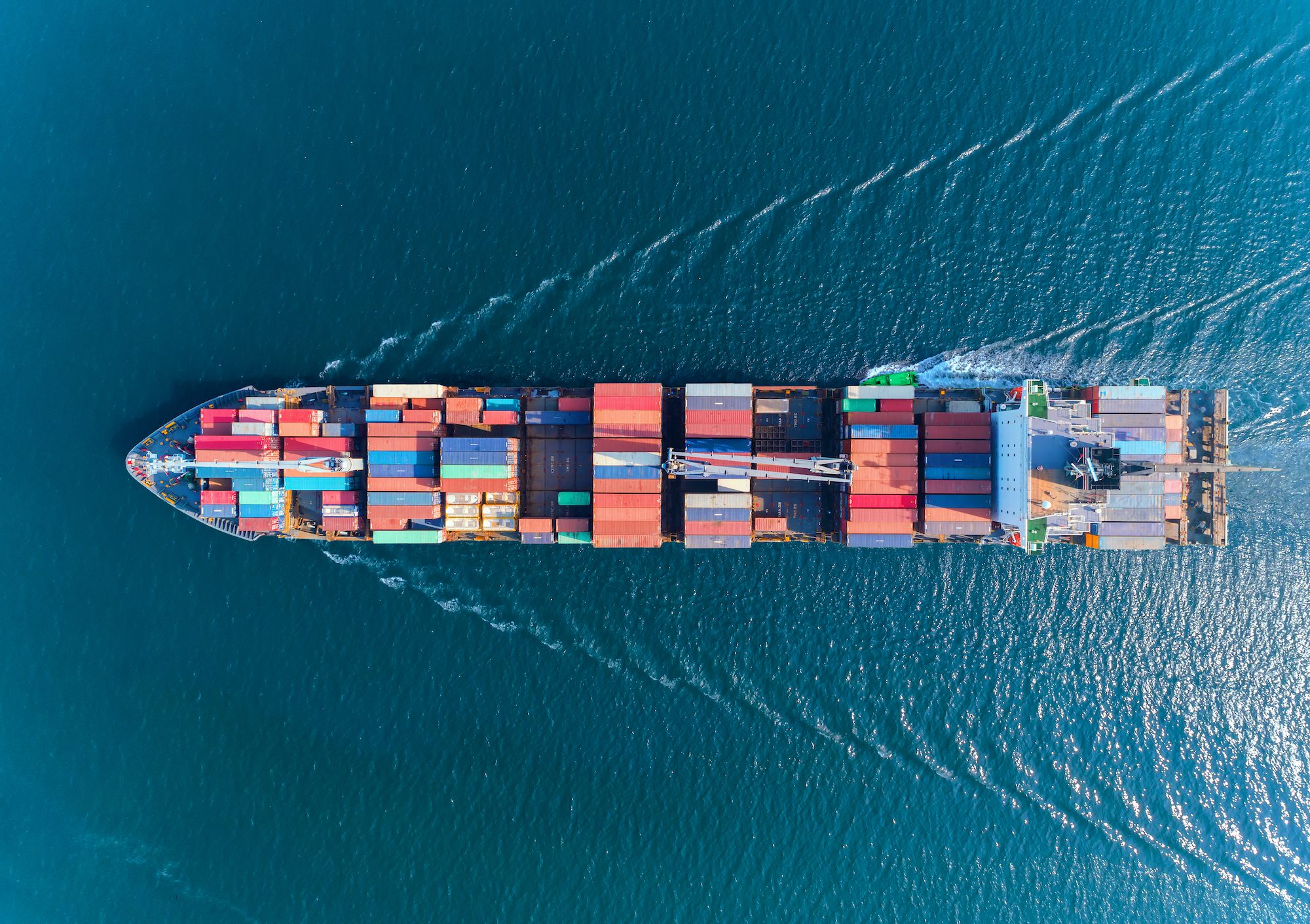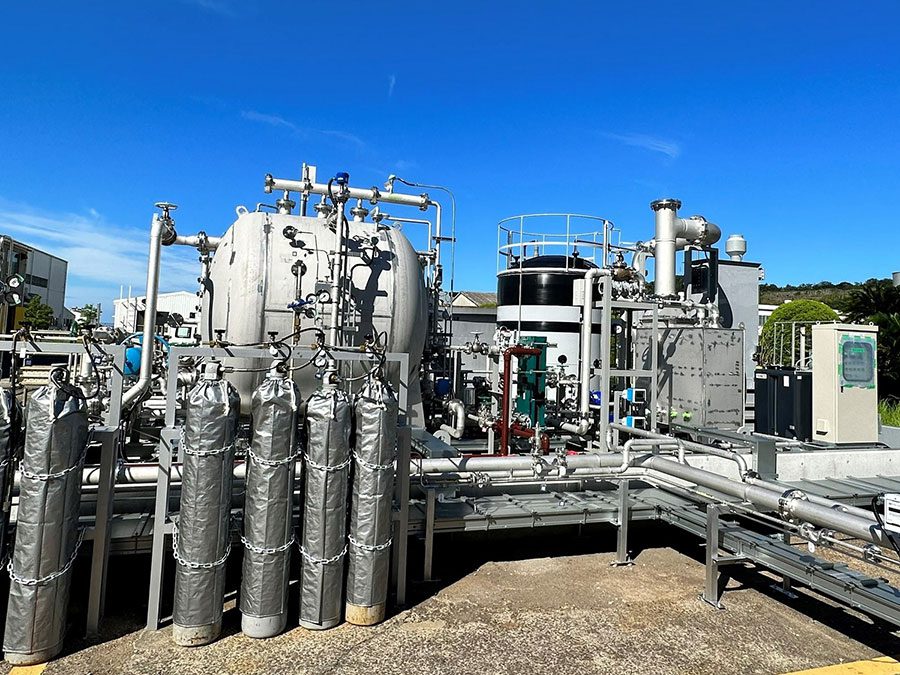(Bloomberg) — China has too many ships.
The glut has pushed new vessel prices to eight-year lows and caused a 49 percent plunge in first-half orders at the nation’s more than 1,500 shipbuilders. It’s also tipped smaller yards into bankruptcy and hit earnings at larger players.
“It is a pretty depressing environment,” said Ajay Mirchandani, a Singapore-based JPMorgan Chase & Co. analyst. “You just have too many yards and too few orders, which is hurting pricing and profitability.”
Orders have tumbled as a global excess of commodity, oil and container ships has damped cargo rates and deterred owners from ordering more vessels. China Rongsheng Heavy Industries Group Holdings Ltd., the nation’s biggest shipbuilder outside state control, hasn’t announced any vessel contracts this year, while Yangzijiang Shipbuilding Holdings Ltd.’s backlog shrank 27 percent in the year ended March because of the slowdown.
“It might take two to three years before the situation improves,” said Zhang Yao, Yangzijiang’s investor relations spokesman. “There’s definitely an adverse impact on our profits.”
Profit Slump
Guangzhou Shipyard International Co.’s first-half profit probably fell more than 50 percent, partly because the price of under-construction vessels “dropped sharply” from a year earlier, the company said this week.
The shipbuilder dropped 0.6 percent to HK$4.77 at close of trading in Hong Kong. It’s fallen 55 percent in the past year, while Rongsheng Heavy has plunged 72 percent. In Singapore, Yangzijiang has slumped 31 percent and Cosco Corp. Singapore Ltd. has tumbled 48 percent.
“Until we have some clarity in the world economy, we won’t see any price recovery,” Rongsheng Heavy said in an e-mailed reply to Bloomberg News questions. World trade has been “negatively affected” by the global uncertainty caused by the European debt crisis, the Shanghai-based shipyard said. It declined to comment on orders this year.
The order slump has caused Chinese shipbuilders’ backlog to fall 24 percent this year and pushed a monthly index of new-ship prices compiled by shipbroker Clarkson Plc to the lowest since March 2004. Yangzijiang held orders for 96 ships at the end of March, compared with 131 a year earlier. It won seven orders in the first quarter.
China has 1,536 shipyards with annual sales of more than 5 million yuan ($780,000), according to the China Association of the National Shipbuilding Industry.
Capacity Surge
Shipbuilding and shipping capacity surged because of speculation fueled by China’s demand for raw materials. The government also provided low-cost financing for new vessels to help support shipyards.
That combination contributed to a global surge in orders from about 2007, including for dry-bulk ships, used to haul iron ore and coal. These vessels and cooling demand are now hammering charter rates. The benchmark Baltic Dry Index has dropped 26 percent in the past year to 958 yesterday. It reached a high of 11,793 in May 2008.
Among capesize ships, the largest vessels tracked by the index, the global fleet has about doubled in five years to 1,464 at the start of the month, according to Clarkson. Three-year charter rates have tumbled to around $10,000 a day from about $55,000 five years ago, according to the London-based shipbroker.
Capesize Slump
The slump has caused orders for new capesize ships to plunge. Worldwide, 12 capesizes were ordered in the first half, compared with 71 for the whole of 2011. Prices have slumped to $46.5 million as of June, 14 percent less than a year ago and 50 percent down from the end of 2007, according to Clarkson data. Panamax prices have plunged 19 percent in the past year, while prices for 4,800-box container ships have tumbled 19 percent.
Worldwide orders for dry-bulk vessels dropped 49 percent to 9.8 million deadweight tons in the first half, according to Clarkson. Orders for all ship types fell 46 percent to 20.9 million deadweight tons, it said. Chinese shipyards won orders totaling 8.5 million deadweight tons in the period.
Chinese shipbuilders have been more affected by the orders slump than yards in South Korea, home to the world’s biggest shipbuilders, because of their greater reliance on dry-bulk vessels. South Korean yards including Hyundai Heavy Industries Co. and Daewoo Shipbuilding & Marine Engineering Co. have benefited from demand for energy equipment such as offshore units and drill ships, which are more complicated to build and offer higher margins.
Unprofitable Orders
The drop in prices means that new orders are rarely profitable for Chinese shipbuilders, particularly for smaller ones, said UOB Kay Hian Holdings Ltd. analyst Lawrence Li. Yards are also offering more generous payment terms, such as lower down payments, which is increasing financing costs, he said.
“The shipyards don’t have bargaining power,” Shanghai- based Li said. “Demand is really weak.” Prices are unlikely to rise more than 5 percent by the end of next year, he said.
Shipyard failures may help revive prices by paring competition. About half of Chinese shipbuilders may close within three years, Tan Zuojun, general manager of state-owned China State Shipbuilding Corp., said this month, according to Serenities Daily. Calls to the company’s offices for comments were unanswered.
Shipyard Failures
Zhejiang Jingang Shipbuilding Co., the largest private shipbuilder in Taizhou, Zhejiang province, filed for bankruptcy last month because of debts of more than 300 million yuan and a lack of new orders, state-owned Global Times reported, citing Yu Shengyue, director of No. 2 Civil Tribunal of the People’s Court of Wenling county.
The shipbuilder had the capacity to build four vessels of over 16,000 tons a year, according to its website. Two calls to its headquarters went unanswered. The numbers listed on its website for its Shanghai office were no longer in service.
Ningbo Hengfu Shipping Trade (Group) Co. and Ningbo Beilun Sky Shipbuilding Co., both Zhejiang-based shipyards, have also filed to sell assets, according to state-run China Daily. The companies’ office numbers are no longer in use.
“You do need a flushing out of capacity,” said JPMorgan’s Mirchandani. “The government will still come in and provide support to the industry in general, but I do believe the support will focus more towards the larger yards.”
Copyright 2012 Bloomberg
Unlock Exclusive Insights Today!
Join the gCaptain Club for curated content, insider opinions, and vibrant community discussions.

 Join The Club
Join The Club













